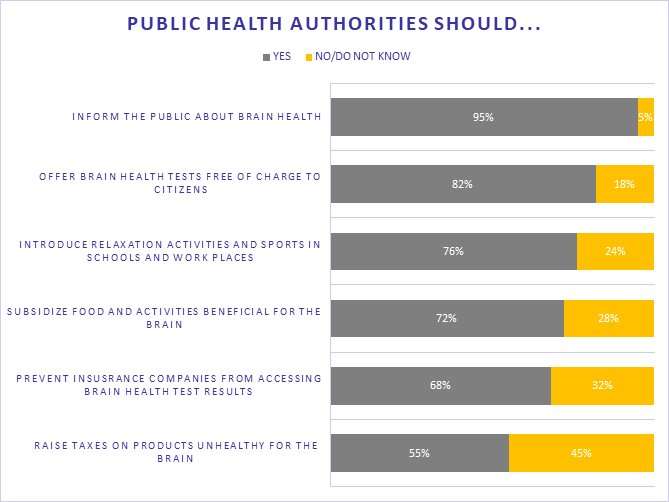
People want clear, evidence-based information about exactly which lifestyle changes can improve their brain health, according to a new report from the Lifebrain consortium in collaboration with the Norwegian Institute of Public Health.
People also say they would need professional support and regular monitoring or follow-up to track the effect of such changes.
Brain health is about your mental well-being and the ability to remember, learn, plan and concentrate.
The report is based on answers from 27,590 respondents from 81 countries who took part in the Global Brain Health Survey, which asked the public what they would need in order to help improve or maintain their brain health.
The survey is the largest worldwide study to date about public perceptions of brain health.
Key author behind the survey, Isabelle Budin Ljøsne at the Norwegian Institute of Public Health, says:
“It is important to promote brain health because almost one-third of the total disease burden in Europe relates to brain disorders. We need to have people on board so that they can make the right lifestyle choices.”
Key findings
To succeed with lifestyle changes to improve or maintain their brain health, the survey finds that:
- Close to all (95 percent) think that public health authorities should provide citizens with clear, evidence-based information on brain health.
- Almost nine out of ten (87 percent) would need professional support, either from their GP or a specialist.
- Four out of five (80 percent) would also need regular monitoring to review the effect of their lifestyle changes.
- Three out of four (76 percent) think the public health authorities should introduce relaxation activities and sports into schools and workplaces
- Three out of four (72 percent) also think that public health authorities should subsidisze healthy food and beneficial activities.
Sources of trust
People trust brain health specialists the most, and conventional and social media the least, for information about brain health. Only half have high trust in their GP. One of the Norwegian respondents said;
“There already exists lots of information on beneficial diet or lifestyle changes, but it is not always easy to know what works or how necessary they are. If there was an online database with evidence-based suggestions, advice, apps, etc., I would use it. It could for instance provide targeted information for different conditions.”
Lead author of the report, Nanna Fredheim at the Norwegian Institute of Public Health, says:
“The survey demonstrates to medical authorities the necessity of relaying accurate and easily understandable public information on brain health. This is clearly something people want and need.”
Norwegian Institute of Public Health

